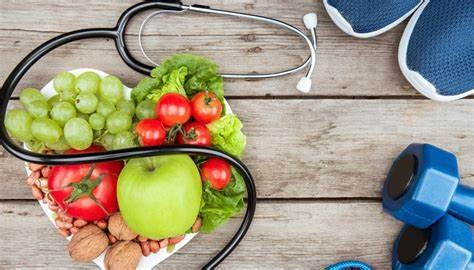Maintaining Healthy Life Style
Need of healthy life style in elderly
HEALTHY AGEING
Dr Sharon Anna Thomas
4/26/20242 min read


Maintaining a Healthy Lifestyle
Importance of Exercise and Mobility
Maintaining a healthy lifestyle is crucial for older individuals to enhance overall well-being and reduce the risk of health issues.
This section emphasizes the importance of exercise and mobility
Benefits of Exercise:
Regular exercise helps improve cardiovascular health, maintain muscle strength, enhance balance and coordination, and promote mental well-being. It can also reduce the risk of chronic conditions such as heart disease, diabetes, and osteoporosis.
Types of Exercise:
Engage in a variety of exercises that focus on cardiovascular endurance, strength training, flexibility, and balance. Examples include walking, swimming, strength exercises with light weights or resistance bands, yoga, and tai chi.
Modifications for Individual Needs:
Adapt exercises to individual abilities and limitations. Seek guidance from healthcare professionals or fitness experts to create a safe and appropriate exercise routine that accommodates any specific health concerns or mobility issues.
Daily Movement:
In addition to structured exercise sessions, encourage regular daily movement. Engage in activities such as gardening, household chores, or taking short walks to maintain an active lifestyle.
Guidance on maintaining a nutritious diet
Healthy Eating Habits Adopting healthy eating habits is vital for older individuals to support optimal health and well-being.
Balanced Meals:
Aim for balanced meals that include a variety of fruits, vegetables, whole grains, lean proteins, and healthy fats. Prioritize nutrient-dense foods that provide essential vitamins and minerals.
Portion Control:
Pay attention to portion sizes to avoid overeating. Use smaller plates and be mindful of hunger and fullness cues to prevent excessive calorie intake.
Hydration:
Stay adequately hydrated by drinking sufficient water throughout the day. Consider carrying a water bottle to ensure regular fluid intake.
Fiber-Rich Foods:
Include fiber-rich foods, such as whole grains, legumes, fruits, and vegetables, in your diet to support digestive health and reduce the risk of constipation.
Limit Sodium and Added Sugars:
Reduce the intake of foods high in sodium and added sugars, such as processed snacks, sugary beverages, and packaged meals. Opt for fresh, homemade meals whenever possible.
Consult a Healthcare Professional:
If you have specific dietary concerns or medical conditions, consult a registered dietitian or healthcare professional for personalized dietary recommendations.
Regular Health Check-ups
Regular health check-ups are essential for older individuals to monitor their health, detect potential issues early, and receive appropriate medical care. This section highlights the importance of regular health check-ups:
Comprehensive Physical Examinations: Schedule regular visits with healthcare providers for comprehensive physical examinations. These examinations assess vital signs, measure body mass index (BMI), screen for diseases, and review medication use.
Preventive Screenings:
Follow recommended guidelines for preventive screenings, such as mammograms, colonoscopies, bone density tests, and cholesterol checks. These screenings help detect potential health issues early, when they are most treatable.
Medication Reviews:
Regularly review medications with healthcare professionals to ensure they are appropriate, avoid potential interactions or side effects, and address any concerns or changes in medication needs.
Immunizations:
Stay up to date with immunizations recommended for older adults, such as influenza (flu) vaccines, pneumococcal vaccines, and shingles vaccines. These vaccines help prevent infectious diseases and protect overall health.
Vision and Hearing Exams:
Schedule regular vision and hearing exams to detect and address any changes or impairments. Proper vision and hearing care contribute to overall safety and well-being.
Mental Health Check-ups:
Pay attention to mental health and seek professional help if experiencing symptoms of anxiety, depression, or cognitive decline. Regular mental health check-ups are as important as physical health check-ups.
Maintaining a healthy lifestyle through exercise, healthy eating habits, and regular health check-ups can promote optimal well-being, reduce the risk of health issues, and support independence and quality of life for older individuals
